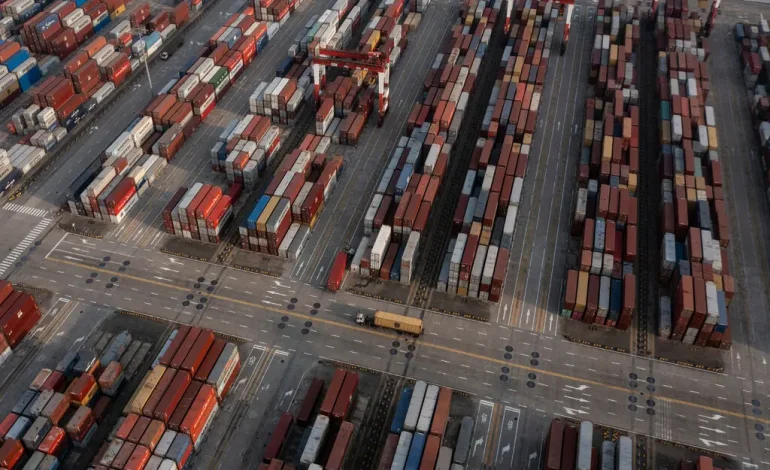President Donald Trump’s recent decision to impose tariffs on imports from China, Mexico, and Canada also introduced a significant shift in trade rules that could impact the cost of many online purchases.
This change, which targets the “de minimis” exemption, has the potential to raise prices for consumers shopping on popular e-commerce sites such as Amazon, Shein, and Temu.
The de minimis exemption, which has been a cornerstone for many online retailers, allows packages valued under $800 to enter the US without being subjected to tariffs or the scrutiny of US Customs. This provision, once a minor technicality, played a major role in the growth of platforms like Shein and Temu, which ship goods directly from China to US customers. However, President Trump’s new executive order aims to eliminate this loophole, which could change the landscape for these online giants.
By removing this exemption, Trump’s executive order effectively levels the playing field for US retailers. Companies like Shein and Temu, which have capitalized on the ability to ship low-value packages duty-free, may now face higher costs as they will no longer be able to bypass tariffs. This shift could lead to increased prices for consumers, as retailers will need to adjust for the added duties and the more rigorous customs process.
One key driver for this change is the administration’s focus on curbing the trafficking of illicit goods, particularly fentanyl. The de minimis rule had made it easier for drugs and drug precursors to enter the US undetected, leading to concerns among law enforcement agencies. The White House has pointed to the flood of low-value imports as a source of this problem, and the administration is seeking to tighten controls in an effort to curb drug smuggling.
Although the move has received some backlash from critics who argue that it could disproportionately affect lower-income Americans—who tend to purchase low-cost imports more frequently—the Trump administration maintains that ending the de minimis exemption will help protect US consumers from the harmful effects of counterfeit goods and drugs. By imposing tariffs on low-value shipments, the US government hopes to regain lost revenue and ensure that goods coming into the country are properly vetted.
For US businesses, this change could level the playing field. Domestic retailers, like David’s Bridal, have expressed support for the move, citing that it would reduce the unfair advantage that foreign companies have enjoyed by circumventing tariffs. With these new tariffs, American companies will no longer be at a disadvantage when competing with e-commerce giants like Temu and Shein, which have grown rapidly by exploiting this loophole.
The impact of the new tariffs will likely be felt most acutely by online shoppers, who have grown accustomed to the low prices offered by platforms that benefit from the de minimis exception. In fact, the Congressional Research Service has estimated that eliminating the exemption could result in higher costs for consumers—potentially as much as $13 billion annually. As a result, shoppers may see price increases for a range of goods, from fast fashion to toys, as companies adjust to the new import taxes.
In the long term, however, experts believe that the shift could benefit US businesses and lead to a more equitable marketplace. With the rise of automation at US Customs, it is anticipated that the transition to formal customs procedures will not overwhelm the system. While the immediate effects of Trump’s tariff decision may cause some price hikes, it may ultimately foster a fairer trade environment and help bring illicit trade under control.
With input from the New York Times, Reuters, and Fortune.








